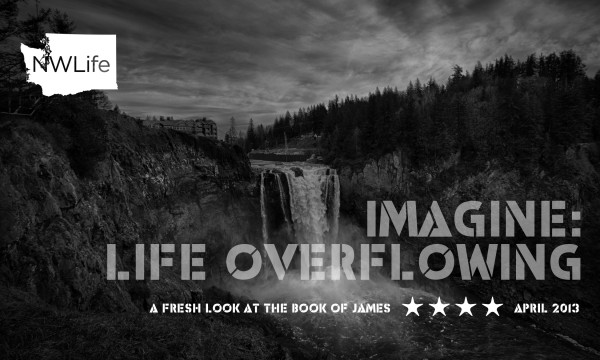I love those stories of family, friends, colleagues, co-workers, or classmates, who—in an act of solidarity with one who has lost all their hair because of cancer and radiation treatments—shave their heads too.
It’s such a visual and tangible representation of “We’re standing with you in this.”
Solidarity is a chosen unity that produces shared interests and objectives.
In other words, solidarity says..
Your problem is our problem.
Your victory is our victory.
Your need is our need.
Your joy is our joy.
Your lack is our lack.
Your gain is our gain.
Your sorrow is our sorrow.
Your celebration is our celebration.
Jesus is the perfect example of this solidarity that says, “I am with you in this.” He came and lived—as one of us. He came in compassion—to heal us. He came in mercy—to pay for our sins. He came in love—to make it possible for us to be the family, the family of God.
The actions of Jesus said, “Your problem is my problem.”
Now, as the family of God, we are called to this same way of living…
Solidarity with others—with the least of these. We enlarge our circle to include; we are one. This is the kingdom way.
The Bible warns us against creating small circles of insiders, vigilantly protecting the exclusive membership roster. There is no “us and them.” There is only “us.”
My dear brothers and sisters, how can you claim to have faith in our glorious Lord Jesus Christ if you favor some people over others? If you favor some people over others, you are committing a sin. —James 2.1, 9 NLT
Jesus, just before going to the cross, prayed for us. In this prayer, he repeatedly asks that we “Be one.” Interestingly, He wasn’t praying for a particular number of people—but an ever-increasing, enlarging circle of people—that we “Be one.”
I am praying not only for these disciples but also for all who will ever believe in me through their message. I pray that they will all be one, just as you and I are one. —John 17.20, 21 NLT
I recently finished Gregory Boyle’s book Tattoos On The Heart: The Power Of Boundless Compassion. He is a Jesuit priest, and founder of Homeboy Industries—a gang intervention program located in the Boyle Heights neighborhood in Los Angeles, the gang capital of the world.
The final chapter of his book is titled: Kinship. The following are excerpts…
_________________________________
Mother Teresa diagnosed the world’s ills in this way: we’ve just “forgotten that we belong to each other.” Kinship is what happens to us when we refuse to let that happen.
No daylight to separate—just “us.” Exactly what God had in mind.
Often we strike the high moral distance that separates “us” from “them,” and yet it is God’s dream come true when we recognize that there exists no daylight between us. Serving others is good. It’s a start. But it’s just the hallway that leads to the Grand Ballroom: Kinship—not serving the other, but being one with the other. Jesus was not “a man for others” – He was one with them. There is a world of difference in that.
No daylight separates us.
Only kinship. Inching ourselves closer to create a community of kinship such that God might recognize it. Soon we imagine, with God, this circle of compassion. Then we imagine no one standing outside of that circle, moving ourselves closer to the margins so that the margins themselves will be erased.
The wrong idea has taken root in the world. And the idea is this: there might be lives out there that matter less than other lives.
We stand there with those whose dignity has been denied. We locate ourselves with the poor and the powerless and the voiceless. At the edges, we join the easily despised and the readily left out. We stand with the demonized so that the demonizing will stop. We situate ourselves right next to the disposable so that the day will come when we stop throwing people away.
Kinship is what God presses us on to.
_________________________________
Solidarity.
This is exactly what God has done for us.
And it is exactly what he wants from us—that we stand with others, declaring…
Your problem is my problem.
If we don’t, we have a powerless religion—and we are just full of hot air.
Anyone who sets himself up as “religious” by talking a good game is self-deceived. This kind of religion is hot air and only hot air. —James 1.26 MSG
Words aren’t enough. Simply praying that hurts would be healed and the hungry would be fed just doesn’t cut it. We must stand with the hurting and the hungry in solidarity because they are “us” and this is our problem.
Isn’t it obvious that God-talk without God-acts is outrageous nonsense? —James 2.17 MSG
Pure and genuine religion in the sight of God the Father means caring for orphans and widows in their distress. —James 1.27 NLT
In God’s family, the orphans are our children and the widows are our mothers. They are “us.”
Wrapping up, just a little more from Gregory Boyle’s book…
The strategy of Jesus is not centered in taking the right stand on issues, but rather in standing in the right place—with the outcast and those relegated to the margins. Compassion is always, at its most authentic, about a shift from the cramped world of self-preoccupation into a more expansive place of fellowship, of true kinship.











